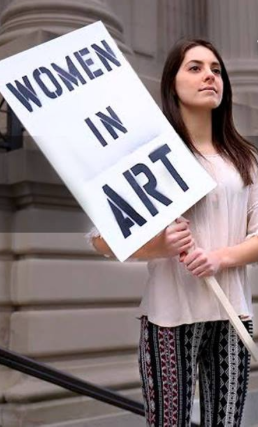CAST Stages ‘The Heidi Chronicles’

Courtesy of College of Arts and Science Theater
NYU Theatre Group, CAST, performed “The Heidi Chronicles” over the weekend.
April 11, 2016
The NYU College of Arts and Science Theater’s production of “The Heidi Chronicles,” directed by Gallatin junior Kirsten Sweeney, explains why we needed feminism in the late 20th century and why we need it now. The classic 1988 Wendy Wasserstein play follows the title character, Heidi Holland, through the beginnings of the Women’s Liberation movement in the 60s, the ardent demand for equal rights in the 70s and the disillusionment of the baby boomer generation of the 80s. Heidi adamantly advocates for feminism, transforming with each new nuance of feminism from decade to decade as her contemporaries abandon the cause. This portrayal of feminism in the 60s, 70s and 80s is interesting to contrast with modern feminism. While the feminism of the past was not the most inclusive, it laid the groundwork for modern feminism and made intersectionality possible. One note that unfortunately resonates is how far we still have to go with equality and how incredibly important it is that we demand equality for all.
CAST’s production of “The Heidi Chronicles” expertly emphasized the parallels between Heidi’s experience with the Women’s Liberation movement and the experience of modern feminists. While the temporal setting is key, this production, designed by CAS junior Zev Spiegel, only included elements of the past when necessary, but ultimately featured a very neutral set and costume design. This bold stylistic choice at times makes the timeline of the show a bit difficult to follow, but by making the setting take a backseat to the plot itself, it greatly highlights the similarities between the two feminist movements and their demand for equality.
Tisch sophomore Kristen Vaganos, who played Heidi, did a beautiful job portraying the arc of Heidi’s self discovery: beginning with the uncertain Heidi of the 60s who blossoms to the strong-willed Heidi of the 70s and finally the frustrated and once again uncertain Heidi of the 80s. Vaganos made each chapter of Heidi’s life incredibly clear and honest. Vaganos shone during her monologue in the scene where Heidi speaks at the “Women: Where are we going?” conference and arrives at the realization that she does feel directionless. Vaganos delivered this monologue with both severity and sensitivity. Stern freshman Nick DeMassi portrayed Heidi’s gay best friend and confidant Peter Patrone with humor, wit and vulnerability and gave a touching performance in the penultimate scene, when he briefly alludes to the AIDS epidemic in a heartbreakingly sweet moment between Peter and Heidi. One other cast member who particularly stood out is Gallatin freshman Cheryle Chong, who was quadruple cast as Fran, Molly, Betsy and April. Chong made very clear distinctions between each character and made very successful bold choices for each one making each character compelling and distinguishable.
This play in this modern context gives a hopeful view of what can be achieved with feminism, celebrates how far we have come and reminds us how far we still have left to go. This iteration of “The Heidi Chronicles” serves as a passionate call to action to all the heroines of the 21st century to stand up for their equal rights and do what is right.
“The Heidi Chronicles” played at the Steinhardt Education building this past weekend.
A version of this article appeared in the Monday, April 11 print edition. Email Joseph Myers at [email protected].









































































































































